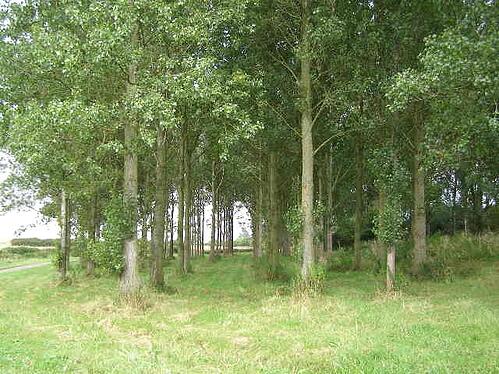As we progress farther into the digital age, society maintains a surprising dependence on paper. In industry and academia, paper is still heavily relied on for reports, records, and correspondence. Twenty years ago, bioresearchers at the University of Madison, Wisconsin began developing ways to increase efficiency of paper production. Technology forecasters at the time might have predicted that such research would be irrelevant by 2014; however, the recent release of the team’s results is actually exciting and pertinent news.
 This study began with a simple idea: construct trees that can be easily deconstructed. Most of the time and energy in paper production is spent decomposing lignin, a complex polymer that makes the walls of plant cells strong and difficult to break down. The team thought that designing trees in which the lignin was less hardy would speed up the processing time and reduce the energy needed to make paper. In the nineties, this was a daunting task, but technology has moved forward at a useful pace for this project, according to John Ralph (pictured left), professor of biochemistry at UW-Madison.
This study began with a simple idea: construct trees that can be easily deconstructed. Most of the time and energy in paper production is spent decomposing lignin, a complex polymer that makes the walls of plant cells strong and difficult to break down. The team thought that designing trees in which the lignin was less hardy would speed up the processing time and reduce the energy needed to make paper. In the nineties, this was a daunting task, but technology has moved forward at a useful pace for this project, according to John Ralph (pictured left), professor of biochemistry at UW-Madison.
“We can now move beyond tinkering with the known genes in the lignin pathway to using exotic genes to alter the lignin polymer in predesigned but plant-compatible ways, essentially ‘designing lignin for (chemical) deconstruction,” he explains in a recent UW-Madison article.
Beyond the apparent benefits for the paper industry, Ralph’s research contributes to the field of biofuels as well. Many plants keep their sugars, which are valuable sources of bioenergy, hidden behind strong lignin walls. Extending the genes isolated in this study to other biomass should help to more easily reach these sugars, increasing the efficiency and yield of biofuel creation processes. In fact, associate professor Curtis Wilkerson asserts that such an application can begin with the poplars themselves. He elaborates: “By designing poplars for deconstruction, we can improve the degradability of a very useful biomass product. Poplars are dense, easy to store, and they flourish on marginal lands not suitable for food crops, making them a non-competing and sustainable source of biofuel.” Wilkerson sees this research as a stepping-stone to unlocking the full efficiency and potency of converting biomass into clean energy.

(A poplar forest, courtesy Wikimedia Commons and Brian Green)
This research was part of a government–funded Great Lakes Bioenergy Research Center, one of three Bioenergy Research Centers nationwide that receive grants from the Department of Energy to study biofuels and other green energy sources. For further reading regarding funding for the University of Wisconsin, Madison and its studies, click on the link below:
Biotechnology Calendar, Inc. visits the University of Wisconsin campus for two of our BioResearch Product Faire™ events each year. Coming up in 2014 are our Madison University Research Park BioResearch Product Faire™ on September 3rd, 2014, immediately followed by our Madison BioResearch Product Faire™ on September 4th, 2014. To attend one or both of these events, please click the buttons below. If you’re interested in attending a show closer to home, please look at our 2014 schedule of events.




